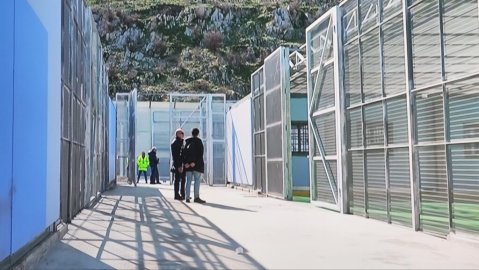Introduction to the Italian Detention Model in Albania
The ongoing immigration crisis has led various nations to adopt different detention models for migrants. Recently, Caritas has raised concerns regarding the Italian detention model implemented in Albania. This model has been described as inhumane and detrimental to the well-being of migrants seeking refuge and better opportunities.
Understanding the Italian Detention Model
The Italian detention model involves the detention of migrants in facilities that are often overcrowded and lack basic amenities. Reports indicate that these facilities do not meet international standards for humane treatment. Migrants are held for extended periods without adequate legal representation or access to essential services.
Key points regarding the model include:
The Role of Caritas in Advocacy
Caritas, an organization dedicated to humanitarian work, has been vocal in condemning the treatment of migrants in these facilities. The organization emphasizes the need for humane treatment and respect for the rights of all individuals, regardless of their immigration status.
The advocacy efforts of Caritas include:
The Impacts of Inhumane Detention Practices
The inhumane practices associated with the Italian detention model can have long-lasting effects on migrants. The psychological toll of detention can result in anxiety, depression, and trauma. Furthermore, the lack of legal representation can impede the migrants’ ability to navigate the immigration system effectively.
Consequences of such practices include:
Global Response to Immigration and Detention
Countries around the world are grappling with how to handle immigration and detention. The situation in Albania serves as a reminder of the importance of humane treatment for migrants. Various organizations, including Caritas, are advocating for reform in immigration policies to ensure that human rights are respected.
Global discussions are focusing on:
Calls for Reform in Albania
As the situation in Albania continues to draw attention, there is a growing call for reform. Advocates argue that the current model is not only inhumane but also ineffective. The need for comprehensive immigration reform has never been more critical, and it is essential for nations to collaborate to create a framework that protects the rights of migrants.
Recommendations for reform include:
Conclusion: A Path Forward
The condemnation of the Italian detention model by Caritas serves as a crucial reminder of the need for humane treatment of migrants in all nations. It is imperative for countries to reflect on their immigration policies and prioritize the dignity and rights of individuals seeking refuge. By advocating for reform and adopting humane practices, we can work towards a more just and equitable immigration system.
In conclusion, it is essential for all stakeholders in the immigration debate—governments, humanitarian organizations, and the public—to engage in meaningful dialogue and actions that promote respect for human rights and the well-being of migrants.
By addressing these pressing issues, we can ensure a more humane approach to immigration, paving the way for a better future for migrants around the world.










